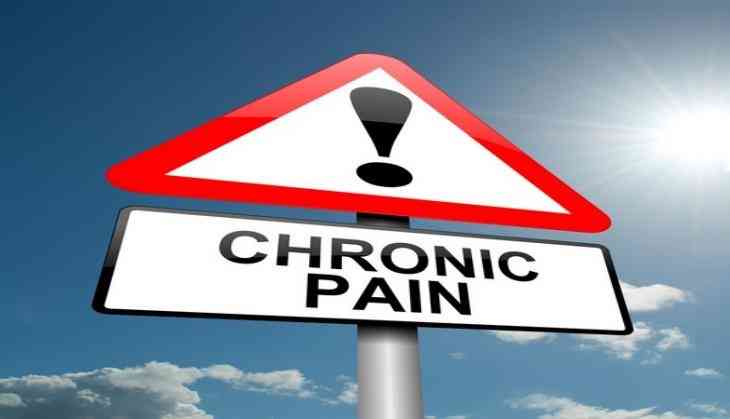
An interview with Interventional Pain Specialist, Dr. John Hong.
Can you describe chronic pain?
Dr. Hong: Chronic pain is pain that persists beyond the usual time frame for healing, typically more than 2-3 months.
How is chronic pain different from acute pain?
Dr. Hong: Acute pain is typically a normal, physiologic pain resulting from an injury. This usually serves a beneficial, protective purpose, reminding us to protect the area from further injury. Chronic pain no longer serves a beneficial purpose and can result in downward spiral of physical and mental well-being. Harmful changes can occur within the pain sensing and processing nerves themselves that can lead to persistent and worsening pain.
Who generally suffers from chronic pain? Veterans, car accident victims, trauma victims?
Dr. Hong: Chronic pain may affect all different types of people. Although most chronic pain develops after some type of injury such as trauma or surgery, pain may also develop without any clear cause. Chronic pain is also more common in those with increased psychosocial stressors.
How does chronic pain affect quality of life?
Dr. Hong: Chronic pain adversely impacts all aspects of quality of life. Pain can limit movement resulting in reduced muscle and joint flexibility and strength. Limited mobility can result in impaired functionality, affecting an individual’s ability to perform work and leisure activities. Pain also causes psychological stress which often results in depression, anxiety, and social isolation.
Do you find that patients tend to suffer in silence for years before seeking treatment or bouncing from one doctor to the next before finding the right pain management specialist? If so, do you have any thoughts on why this occurs?
Dr. Hong: Many patients seek a pain management specialist too late after their symptoms have developed. Part of this might be a desire to simply tough out their pain. Or, it may be that they have been unable to find a qualified pain specialist to address their needs. Too often, their pain issues have been mismanaged leading to further harm. Many patients end up simply being treated with opioid pain medications and develop over dependency or addiction issues. Unfortunately these patients deal with both their chronic pain and also possible substance abuse disorder. Opioid abuse continues to be an epidemic in our communities.
How is chronic pain diagnosed?
Dr. Hong: Pain is a subjectively reported symptom. Thus, no single imaging or lab test can be used to definitively diagnose this disorder. Chronic pain should be diagnosed by a qualified healthcare provider based on a careful history, physical exam, and any necessary imaging and laboratory studies.
Can you talk about treatment options? Is it usually a one-size-fits-all approach?
Dr. Hong: Treating chronic pain is challenging because of the complex nature of pain and unique nature of each sufferer. Thus, a customized approach is required for best results. The first step is to appropriately identify of the source of pain. It is important to understand the physical, psychological, and societal contributions to chronic pain for each sufferer. Treatment options include counseling, mental health care, medications, rehabilitation, alternative modalities such as acupuncture, and interventional techniques. Interventional techniques typically involved minimally invasive procedures, usually performed with needles, to identify and directly treat various sources of pain. Examples of which include nerve blocks and ablations, steroid injections, and nerve stimulation to block pain signals.
What do you suggest to someone who believes they may suffer from chronic pain?
Dr. Hong: I would advise patients not to suffer silently with persistent pain. Although the “grin and bear it” approach may work for some, inevitably with time, the harmful effects of the pain take their toll and it becomes harder and harder to reverse. Get appropriate care and get it fast! It is important to seek treatment from a qualified pain specialist, preferably someone who is board certified and fellowship trained in pain management and believes in multimodal care.
How does chronic pain take a toll on a patient’s family?
Dr. Hong: Chronic pain negatively impacts relationships with family members, friends, and co-workers. Sufferers often say that they are a different person when they are in pain. It is hard to enjoy life and others when one is suffering. Because pain is something experienced and not always associated with an outwardly visible sign of injury, others may falsely presume that the pain is being imagined and not real.
Final thoughts?
Dr. Hong:
Creating an effective pain program requires having enough tools to effectively address the complex and varied needs of chronic pain suffers. I believe in a multimodal, comprehensive approach to pain management which involves close collaboration between the pain specialists and other providers including neurosurgeons, neurologists, rehabilitation specialists, and mental health care providers. The pain specialists at Gateway Spine & Pain Physicians perform a wide range of treatments including cutting edge interventional procedures to most effectively identify and treat pain.
For additional information regarding Gateway Spine and Pain Physicians, please visit gatewaypain.com or call (630) 226-1130.
